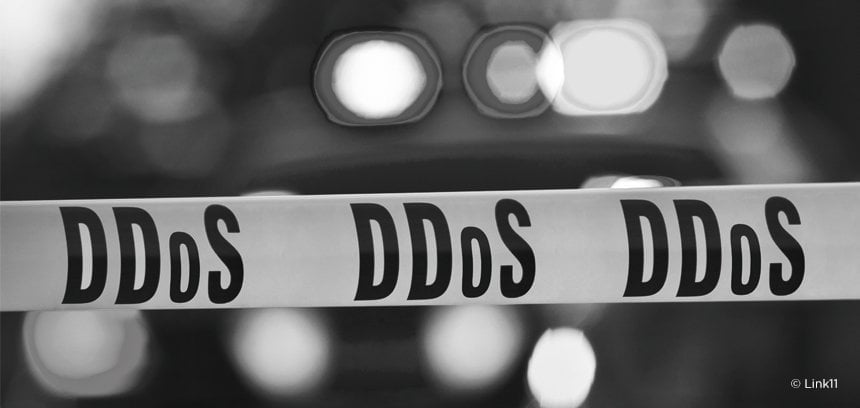Content

In recent years, many companies have relied on a content delivery network (CDN) for better website performance and combined it with web DDoS protection, usually from the same provider, to secure their websites and applications. However, more and more European enterprises are increasingly selecting European Union (EU)-based providers rather than relying on non-European protection solutions. With good reason, this trend has gained momentum. Several factors are contributing to this development and will be presented in more detail in the following.
One essential aspect is data protection. With the implementation of the General Data Protection Regulation (GDPR) in 2018, companies operating in the EU must prioritize protecting their customers’ personal data. This has caused many to seek business partners who are also based in Europe. These partners are subject to the same strict regulations and thus ensure the required data protection and privacy standards.
Is GDPR compliance ensured?
Companies that handle personal data must ensure that it is processed and stored securely. CDN and web DDoS protection providers headquartered outside the EU cannot guarantee that data will be processed in a DSGVO-compliant manner.
The Schrems II judgement, handed down by the European Court of Justice in 2020, has further complicated the issue. The judgement invalidated the Privacy Shield framework, which previously allowed companies to transfer personal data from the EU to the United States. Thus, companies working with non-European CDN and web DDoS protection providers face harsh penalties if they violate the General Data Protection Regulation.
Why US-based CDN and web protection providers should be reviewed
As a result, it is becoming increasingly important for companies to audit their content delivery network (CDN) and web DDoS protection providers based in the US, for example. Can they guarantee compliance with European data protection regulations? What is the situation regarding the Schrems II ruling and the transfer of personal data? What legal and financial penalties can companies expect if a breach of the GDPR is found?
To avoid these risks, working with local providers within the EU is a good idea. These are familiar with the intricacies of the European market while ensuring that data is processed in a GDPR-compliant manner.
Reliable and cost-sensitive
Another important aspect is the reliability of the services offered. Businesses should be able to rely on their websites always being up and running, regardless of the amount and type of traffic. CDN operators based in the EU know the specific challenges of the European market and can respond quickly to any problems that arise.
In addition, the costs of a GDPR-compliant solution also play a role. Although non-European suppliers initially offer lower prices, the costs for compliance with European data protection regulations quickly add up due to corresponding contract add-ons. These costly EU compliance fees do not apply to local suppliers.
Ultimately, the risks of non-compliance with European data protection regulations are too high to ignore. This makes it even more important to scrutinize CDN and web DDoS protection providers. This way, European companies can protect themselves from legal and financial penalties while supporting local economies.
Risk assessment and impact assessment – companies have a responsibility
Companies themselves are responsible for ensuring that no personal data of their company or their customers’ companies is transferred to the US or third countries. This is, of course, unless they comply with the strict data transfer rules of the UK Information Commissioner’s Office (ICO) or the European Data Protection Board (EDPB).
To that end, companies must conduct a Transfer Impact Assessment (TIA) or Transfer Risk Assessment (TRA) for each vendor they work with. These assessments are costly and complex, but they are essential to ensure that companies manage their data in compliance with the GDPR regulations.
The UK Information Commissioner’s Office (ICO) has issued updated guidance on international transfers of personal data from the UK to third countries. The ICO’s guidance requires organizations relying on transfer instruments under Article 46 of the UK General Data Protection Regulation to conduct a transfer risk assessment (TRA).
The ICO’s TRA focuses on the risks of third-party access to the transferred data and the difficulties in enforcing the transfer mechanisms. The ICO has six questions in its TRA tool that can analyze the level of risk to individuals in the personal data being transferred. The ICO’s TRA tool provides an alternative approach for organizations in the UK to use in addition to or instead of the EDPB’s transfer impact assessment.
CDN and Web DDoS protection risk-free from Europe
By working with local CDN and web DDoS protection providers within the EU, organizations can avoid these costly compliance assessments altogether, as local providers are already familiar with the GDPR regulations and can guarantee compliance. This can save companies time and money.
As the importance of data protection and privacy continues to grow, businesses must be increasingly vigilant about how they handle personal data. By working with local providers that guarantee data security and privacy, a safer and more secure online environment can be created for all.
Are you looking for 100% GDPR-compliant CDN or web DDoS protection? Link11, as a provider headquartered in Germany, fulfils all requirements. Our experts will be happy to support you personally. Contact us at any time.
